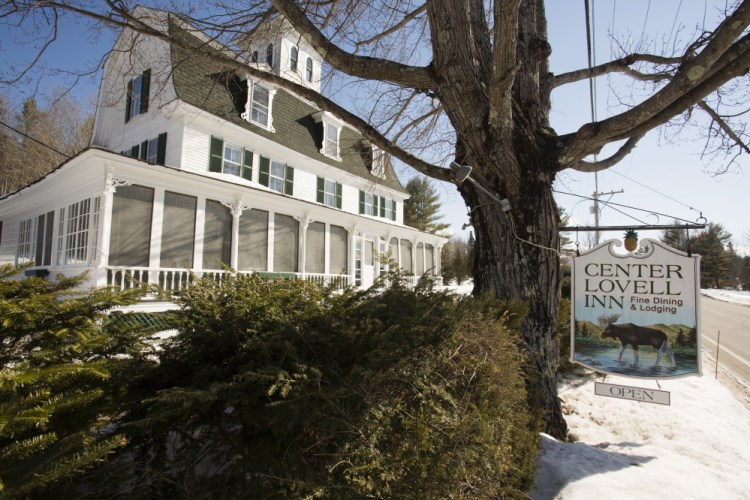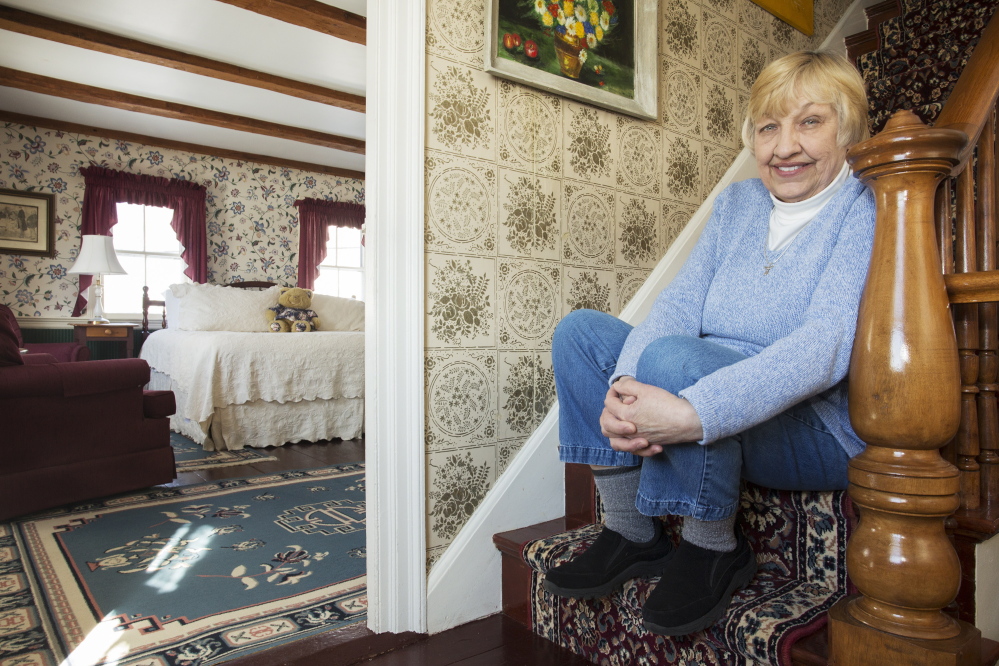Maine State Police are investigating an essay contest in which the owner of a historic inn in western Maine gave away her business.
The contest organized by Janice Sage, owner of the 210-year-old Center Lovell Inn, had attracted national media attention. On June 6, she awarded the business and the 12-acre property to Rose and Prince Adams, a couple living in the U.S. Virgin Islands who were among the thousands who had submitted a 200-word essay and $125 entry fee.
Sage wants to retire and hoped to receive 7,500 entries, raising $900,000 for a property estimated to be worth $905,000. She won the inn in a similar contest in 1993.
A group of unsuccessful contestants is raising questions about whether Sage’s contest gave some people an unfair advantage and whether the inn owner and the winner knew each other. In particular, they are troubled by inconsistencies in the rules and that Prince Adams wrote an e-book about crowdfunding.
Maine State Police Sgt. Michael Johnston, who heads the unit that investigates reports of illegal gambling, is investigating the complaints, state police spokesman Stephen McCausland said.
Essay contests are deemed legal in Maine because they rely on skill, not chance, and the state police had given Sage permission to hold the contest. Nonprofit groups in Maine are permitted to run games of chance, such as Beano, if they have a license.
After the winners were announced, a Facebook group called Center Lovell Contest Fair Practices Commission was formed. The group describes itself as a “safe place for those who believed the Center Lovell Inn Essay Contest may have been handled unjustly to speak their minds and share their experiences.” More than 100 unsuccessful contestants are members of the group.
Cortney Potts, a contestant from Nebraska and spokeswoman for the group, said the contest was poorly managed. For example, the inn listed the contest rules on its website, but the inn also ran a Facebook page, which many people didn’t know about, Potts said.
She said the rules on the Facebook page and the website weren’t consistent. For example, the website provided a post office box for submissions. But the Facebook page also provided the hotel’s address so that people with late entries could mail their essays using overnight mail services.
The Facebook page was taken down quickly after the winner was announced, she said.
She said members of the group became suspicious when the winners were announced. Even though the contest was promoted as being open to people who don’t own a restaurant, the Adamses own a restaurant in St. John called Sweet Plantains.
Moreover, Prince Adams, under the pen name Roger Adams, authored the 2012 electronic book, “Crowd Funding Made Simple,” a step-by-step guide to launching and managing a crowd funding event, Potts said. She said the book describes how to set up a contest similar to the one run by the Center Lovell Inn.
She said her group has no proof of any wrongdoing, but wants police to investigate to make sure the contest followed the law.
“I don’t want to be scammed. Nobody does,” Potts said. “This needs to be looked into.”
Sage did not respond to a phone message left at the inn, which opens for the season on July 10. The Adamses did not respond to a phone message left at their restaurant in the Virgin Islands.
Send questions/comments to the editors.



